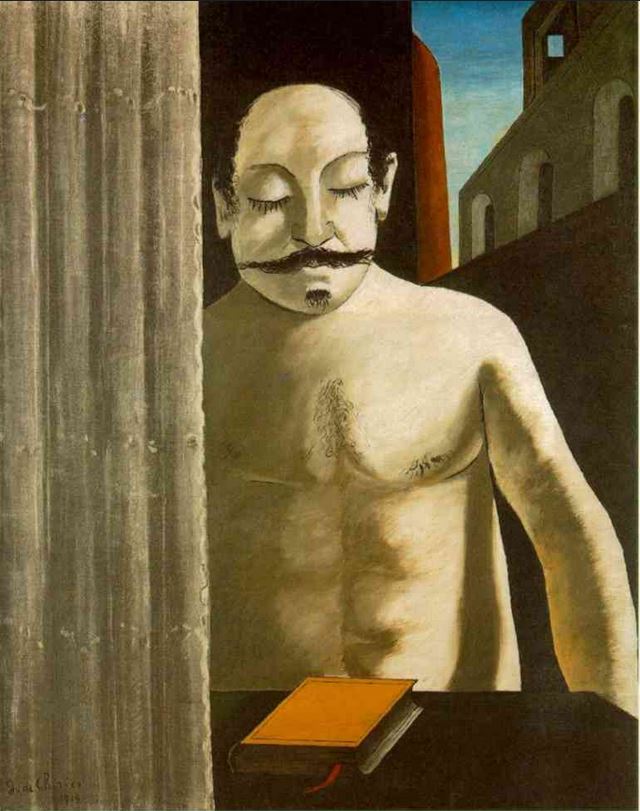
When I was at high school—and even more argumentative than I am now—it was a great asset to find a quotation that supported your viewpoint. Everyone knew Reggie Green was always wrong but arguing against a literary giant was much harder. Luckily, there was a large pool you could draw from.
Even the most ignorant of us, for example, knew some parts of the Bible as thoroughly as any scholar because there was an assembly every morning where some unfortunate kid had to find an uplifting passage and read it to the whole school, six hundred teenagers. all boys, all bored.
Especially unlucky were those with unruly friends who clowned around to put him off his stroke while he ploughed through some parable everyone had heard a dozen times before. I still remember, whenever it was my turn, the relief of saying “Here endeth the lesson,” without having made an impeachable error.
As you see, I was a barbarian. And so were the other 599.
But, whatever lack of religious insight it gave us, this immersion provided a fund of quotations you could dig into to fit any occasion. How empowered you felt with Heaven on your side.
The second largest source was Shakespeare on whom we were force fed from the time we were 11. This was a great source too because, like the Bible, you could find a quote to support (or destroy) anything. Better still, much of it was so hard to understand at first sight that suddenly coming out with one of his phrases was like throwing sand in your opponent’s eyes.
Below him there were great writers of all sorts—the Wordsworths, Miltons, Blakes, Tolstoys, Chaucers, Goethes, Eliots, Grays, and the rest—all of whom added insights that have lasted a lifetime (while also saying some pretty ridiculous things too.) All this was in England and, you’ll notice, so were almost all the great minds from which we were drawing inspiration so this education had obvious limits.
But what an evaporation there has been since then. Only the very edges of this pool of culture are known to today’s conventionally educated and, with an irony that can only make the gods shake their heads in disbelief, this cultural parchness has occurred just when virtually every thought that has ever been expressed is now only fingertips away from even the lowliest educated.
To simplify only slightly: no one reads great literature any more. Just about the only exceptions are those with an ulterior motive, generally because the book they are reading is for a test, which—once dealt with—remains a closed book, so to speak, for the rest of its life.
If you doubt it, let me make you a sporting proposition: try reserving any Shakespeare play from any public library that has a copy. If it’s out to another reader, I’ll give anyone reading this article $10. Yes, $10 to all those reading this article who find the Shakespeare play of their choice booked out to someone else. Not just anyone who writes to me but for a limited time everyone. Reckless, you may say. Perhaps but I am quietly confident.
And I’m confident because, when seeking inspiration, no one nowadays says, “As Hamlet put it … ” or “as Matthew Chapter 3 Verse 2 says … ” Instead, for everyone it’s, “Just like Clint Eastwood said … ” Or, “Beyoncé put meaning in my life when she said, ‘Be healthy and take care of yourself, but be happy with the beautiful things that make you, you.'”
This kind of threadbare philosophising is the rule nowadays not just for schoolchildren and politicians, but everyone, including our most learned—judges, religious leaders, college presidents—the very people who should be holding the line. It’s shocking.
You think I’m exaggerating, don’t you? Ok, but are you willing to take me up on my $10 offer about that Shakespeare play?
I’m aware that the young of today walk confidently through worlds of knowledge we old fogeys don’t even know exist. Which one of us has never had to ask a teenager to solve—effortlessly—a laptop problem that has held us up all day? Even so, they have also lost an awful lot. Instead of the seminal insights provided by profound minds, those “thoughts that wander through eternity” as one of them described them, they take for wisdom what a scriptwriter, who in all probability has had only a narrow experience of life, came up with for a movie whose success is judged almost solely by how many people see it. The best of these lines are clever and illuminating but mostly they are shallow clichés.
We’re poorer than we were.
***
PS The $10 offer just closed.
I feel I should say “I’m sorry you didn’t move fast enough” but, frankly, my dears, I don’t give a damn.
- Like
- Digg
- Del
- Tumblr
- VKontakte
- Buffer
- Love This
- Odnoklassniki
- Meneame
- Blogger
- Amazon
- Yahoo Mail
- Gmail
- AOL
- Newsvine
- HackerNews
- Evernote
- MySpace
- Mail.ru
- Viadeo
- Line
- Comments
- Yummly
- SMS
- Viber
- Telegram
- Subscribe
- Skype
- Facebook Messenger
- Kakao
- LiveJournal
- Yammer
- Edgar
- Fintel
- Mix
- Instapaper
- Copy Link








